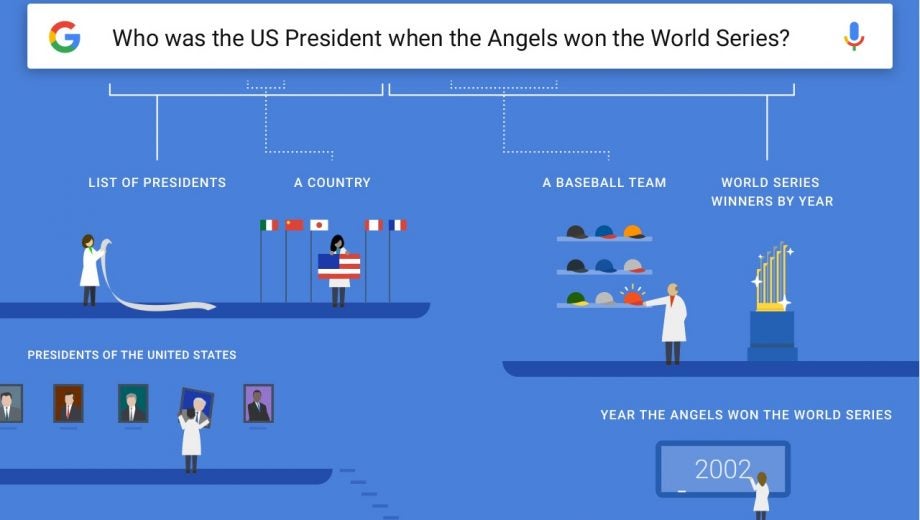Google search app can now handle more complex questions

Google has announced a major update for its search app, claiming it can now understand the meaning behind more complex user queries.
In a post on its Inside Search blog, the firm says the Google app is now more adept at handling natural language questions for both written and spoken requests.
Firstly, it can understand superlatives now, allowing it to answer questions like “What are the largest cities in Texas?”
The app can now handle particular points in time too, according to Google, enabling users to ask questions like “What was the population of Singapore in 1965?”
There’s also the ability to answer complex combinations where one or more answers is required.
For example the app can figure out “Who was the U.S. President when the Angels won the World Series,” by figuring out who the Angels are, when they won the World Series and cross referencing that with who was president at the time.
See also: What is Alphabet? Google’s new parent company explained
“Now we’re “growing up” just a little more,” Satyajeet Salgar, Product Manager wrote.
“The Google app is starting to truly understand the meaning of what you’re asking. We can now break down a query to understand the semantics of each piece so we can get at the intent behind the entire question.
“That lets us traverse the Knowledge Graph much more reliably to find the right facts and compose a useful answer. And we can build on this base to answer harder questions.”


